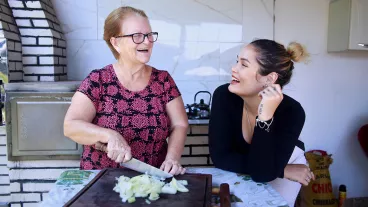More young adults living with parents than ever before
Download Media release
A new report by the Australian Institute of Family Studies (AIFS) has found that young people are increasingly living with their parents well into their late teens and early twenties.
This is especially true of young men, with more than half (51%) of men in their early twenties living with their parents in 2021, up from 46% in 2006.
43% of young women aged 20-24 were living with their parents in 2021, compared to 36% in 2006.
In the largest increase, 72% of 19-year-olds were living with their parents in 2021 – a nine per cent increase since 2006.
Report co-author, Dr Lixia Qu from AIFS, said although young people living with their parents has been gradually increasing over many years, the 2016 to 2021 period showed the sharpest increase in recent decades.
'We can see this trend accelerating in the latest census, which might be an effect of COVID, or due to lack of affordable housing, or a combination of both,' Dr Qu said.
'Although more marked for the late teens and early twenties, the pattern of more young people living with their parents applies to every age until the early thirties.'
The report also showed a strong association between lower income and living with parents. Young men aged between 20 and 24 living with their parents were around twice as likely to have a personal income of under $16,000 per year, compared to those not living with parents (28% vs 15%).
Among those living with parents between ages 25 to 29, 37% had an income under $34,000 per year compared to just 17% of those who did not live with parents.
AIFS Research Director, Dr Rae Kaspiew, said it is important to be aware that while there can be many positives for people in their late teens and early twenties living with parents, it can also have unintended impacts.
'Leaving the parental home typically represents one of the main steps that young people make in the transition to an independent adult life,' Dr Kaspiew said.
'In some cases, when a young person moving out is delayed by months or years, it may lead to more challenging parent-child relationships, or an increase in conflict in the home.
'Differing opinions about habits and lifestyles, coupled with external pressures on the young person – for example, trying to save a house deposit – can all come into play,' Dr Kaspiew said.
'It’s important that communities and policymakers take into account the higher prevalence of this living arrangement, in terms of supporting families via strong mental health services, and other services they may need.'
The report also found young Australian-born men and women from culturally diverse backgrounds such as Asia, Middle East, North Africa and Southern and Eastern Europe were more likely to live with their parents for longer.
Living with parents was more common for young people who had a disability, and those who were non-Indigenous.
In February AIFS published a report highlighting the long-term health, social and economic implications of one in four young people moving home during the national lockdown.
See the full report: Facts and figures – Young people living with parents.
News stories
‘It’s become a lot more like a share house’: when adult children stay in the parental home
Media contact
Kate O'Connor
Phone: 0499 860 257
Email: kate.o'[email protected]
